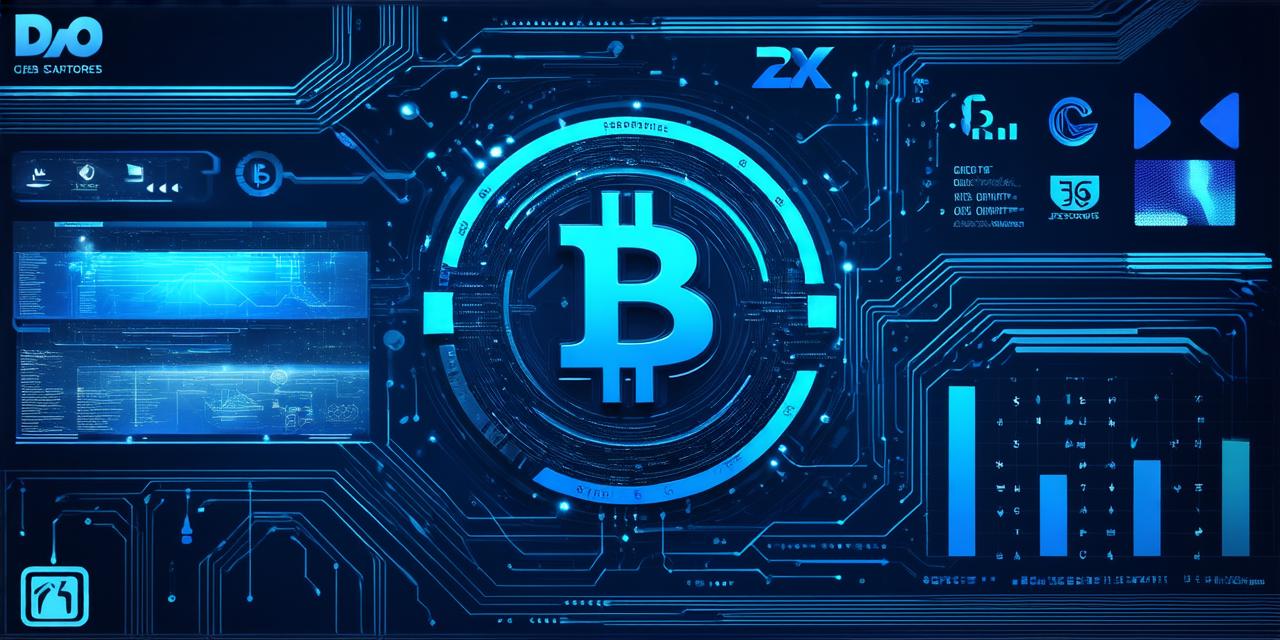If you are new to cryptocurrency, you might be wondering what DAO stands for in this exciting and fast-paced world of decentralized finance (DeFi). In this article, we will explore the meaning and significance of DAO in the context of blockchain technology and cryptocurrency.
What is DAO?
DAO is an acronym that stands for Decentralized Autonomous Organization. A DAO is a type of organization that operates using blockchain technology and smart contracts to make decisions, execute tasks, and manage resources in a decentralized manner.
This means that there is no central authority controlling the organization; rather, it is governed by a set of rules encoded on a blockchain, which are executed automatically by computers.
DAOs were first introduced with the launch of Ethereum, a decentralized platform for building and deploying smart contracts. Since then, several successful DAOs have been created on the Ethereum network, including the Decentralized Autonomous Fund (DAF), which raised over $150 million in ether (ETH) and has since distributed funds to various projects.
Benefits of DAOs
There are several key benefits of DAOs that make them attractive for both individuals and organizations:
- Decentralization
- Immutability
- Efficiency

Case Study: Decentralized Autonomous Fund (DAF)
The Decentralized Autonomous Fund (DAF) is a DAO that was created on the Ethereum network in 2016. The DAF raised over $150 million in ether (ETH) from investors who were interested in supporting decentralized projects and initiatives.
The DAF operates using smart contracts, which automatically distribute funds based on pre-defined criteria. The fund has since distributed its assets to various projects, including funding the development of decentralized applications (dApps), supporting research and development, and investing in infrastructure projects.
One of the key benefits of the DAF is its ability to operate without intermediaries or middlemen. This allows it to distribute funds more quickly and efficiently than traditional venture capital firms, while also reducing costs and increasing transparency.
How does DAO work?
A DAO typically operates using a combination of smart contracts on a blockchain and decentralized consensus algorithms, such as proof-of-work or proof-of-stake. These algorithms allow all parties involved in the DAO to agree on the state of the organization and its rules and regulations.
When a decision needs to be made by the DAO, it is typically encoded on a blockchain as a smart contract, which can then be executed automatically based on pre-defined conditions. This allows the DAO to operate in a decentralized manner, without the need for intermediaries or middlemen.
How to create a DAO?
Creating a DAO requires several steps, including defining the organization’s goals and objectives, designing its governance structure, and creating the necessary smart contracts on a blockchain. This process can be complex and requires technical expertise in blockchain technology and smart contract programming.
FAQs
Q: What is the difference between a DAO and a traditional corporation?
A: A DAO is decentralized, meaning that there is no central authority controlling the organization. A traditional corporation has a central management team that makes decisions and executes tasks on behalf of shareholders.
Q: How does a DAO distribute funds?
A: A DAO typically uses smart contracts to distribute funds based on pre-defined criteria. These criteria can include factors such as project goals, community support, and alignment with the organization’s mission and values.
Q: What is the future of DAOs in cryptocurrency?
A: The future of DAOs in cryptocurrency looks promising, with more organizations and projects adopting decentralized governance models. As blockchain technology continues to evolve, we can expect to see even more innovative and efficient ways for organizations to operate using smart contracts and decentralized consensus algorithms.
Conclusion
In conclusion, DAO stands for Decentralized Autonomous Organization in the context of cryptocurrency. DAOs provide several key benefits, including decentralization, immutability, and efficiency. The Decentralized Autonomous Fund (DAF) is a real-life example of how DAOs can operate to fund decentralized projects and initiatives.
As blockchain technology continues to mature, we can expect to see more organizations adopt decentralized governance models and use smart contracts to automate decision-making and execution. With their ability to operate without intermediaries or middlemen, DAOs are well-suited for tasks such as fundraising, supply chain management, and dispute resolution, making them a powerful tool in the world of cryptocurrency.
